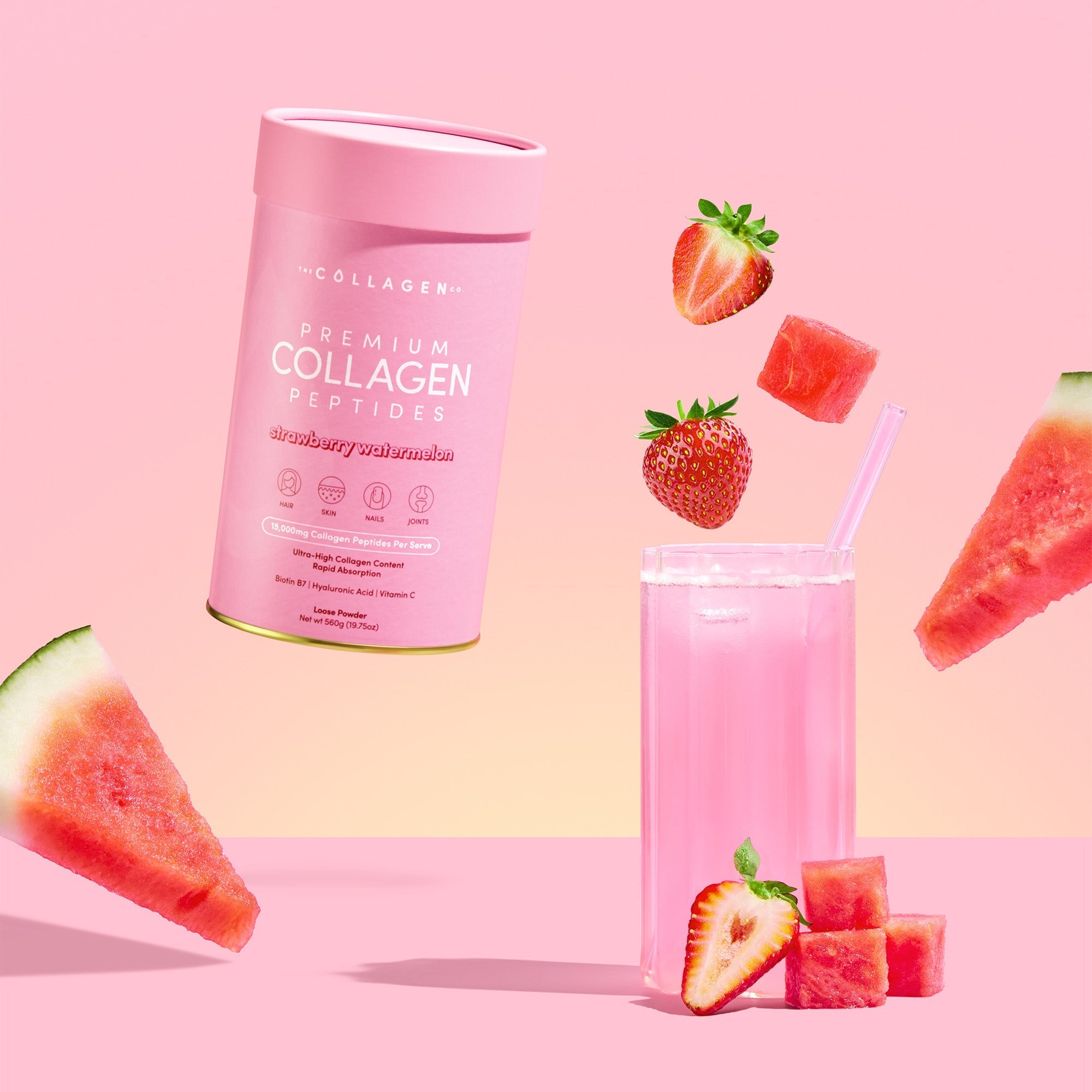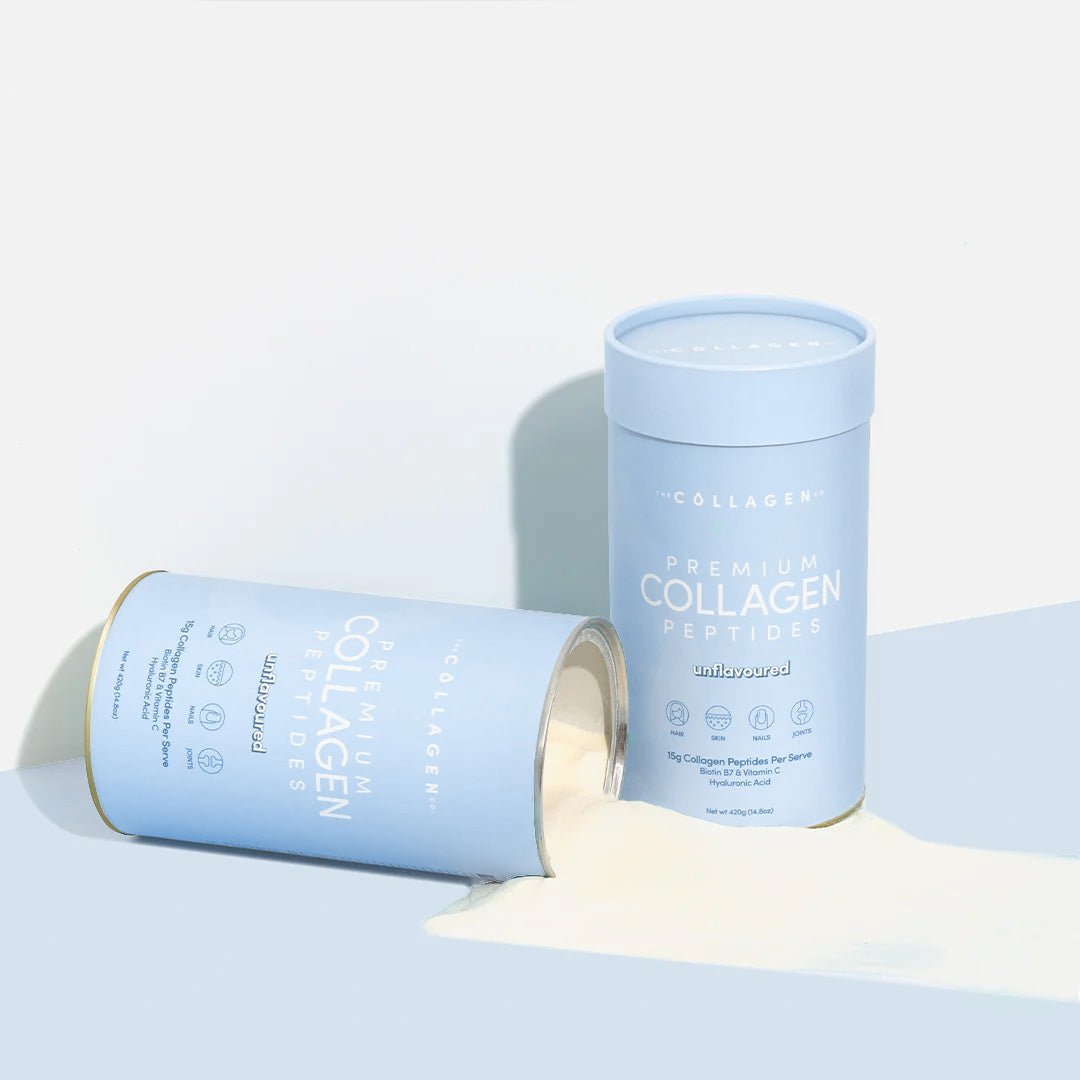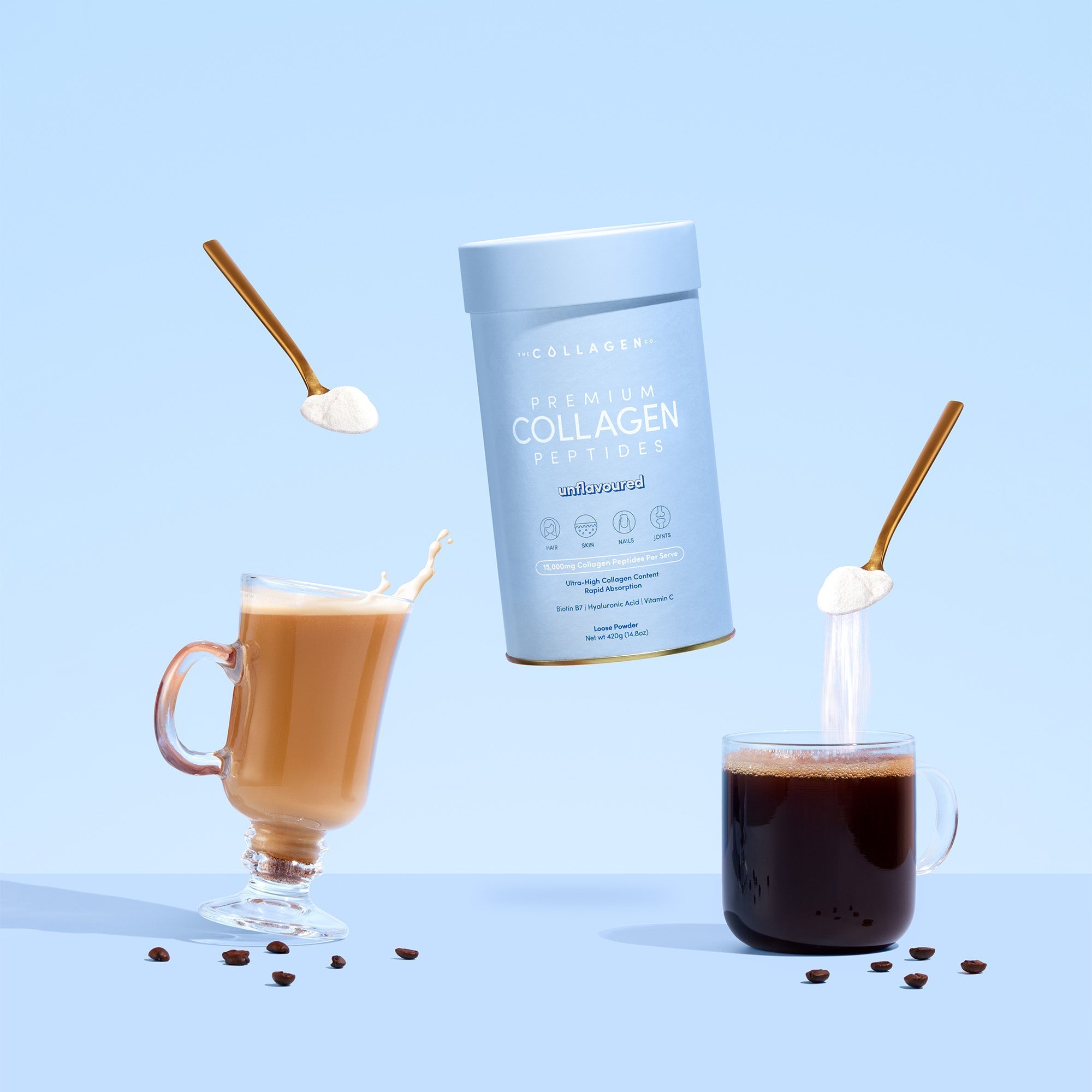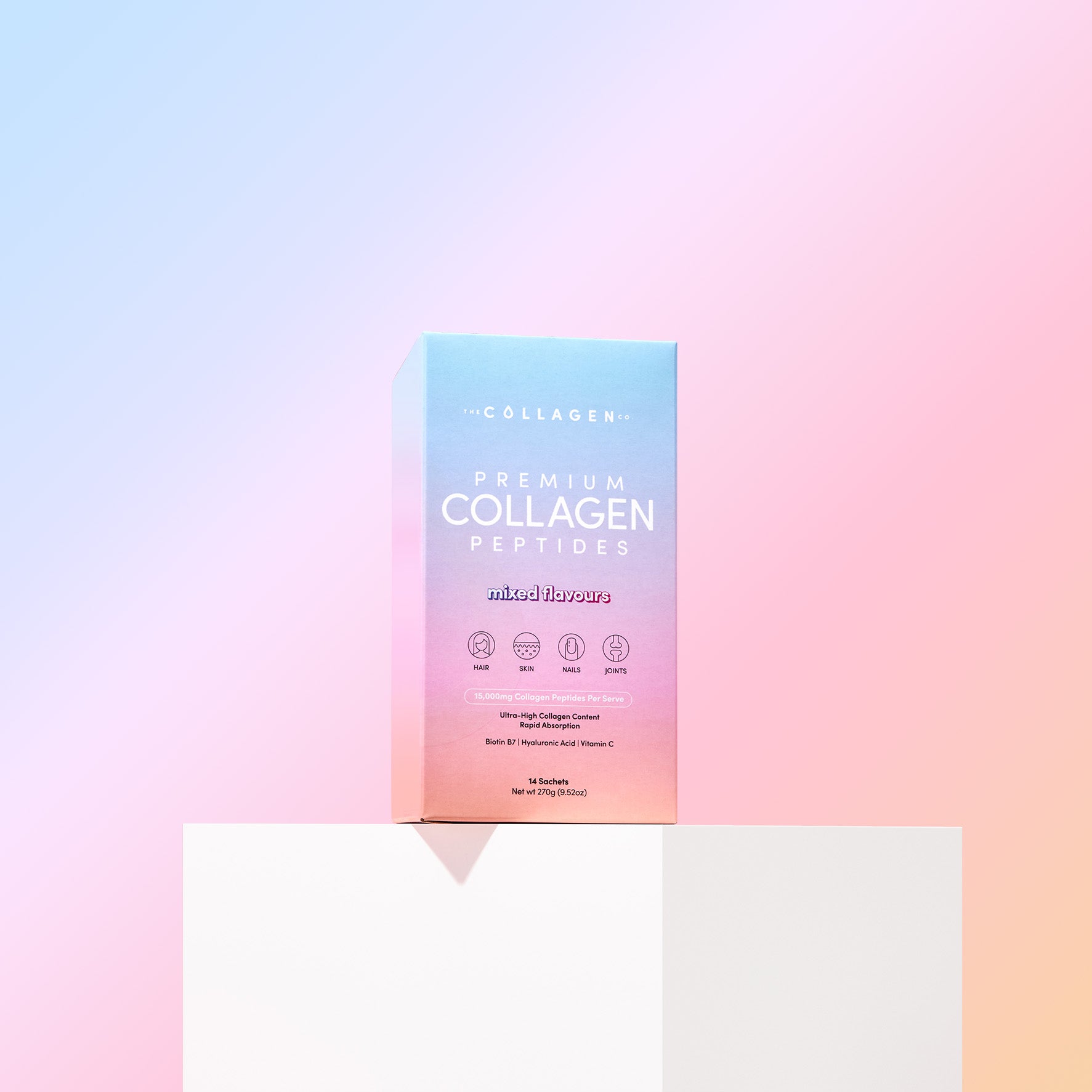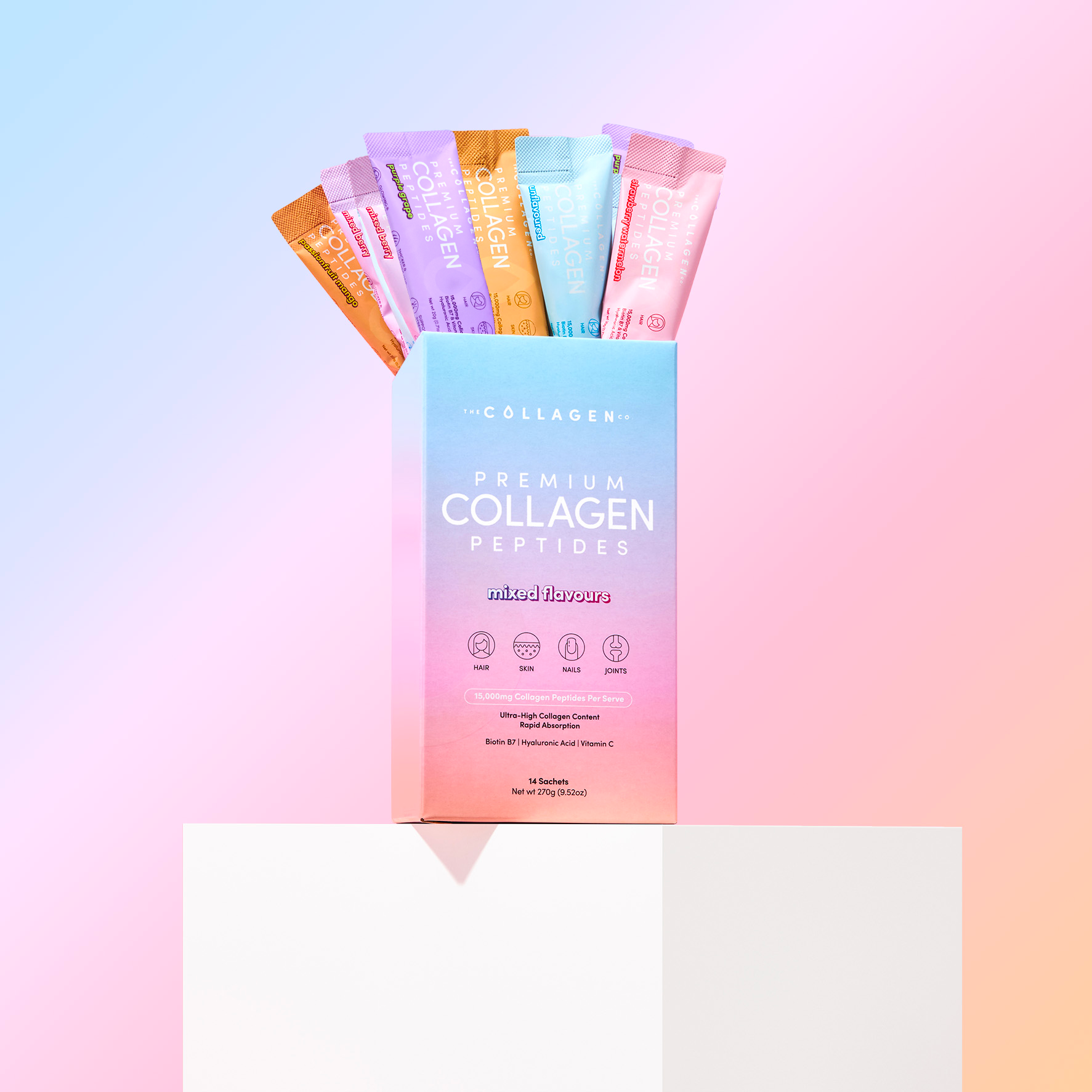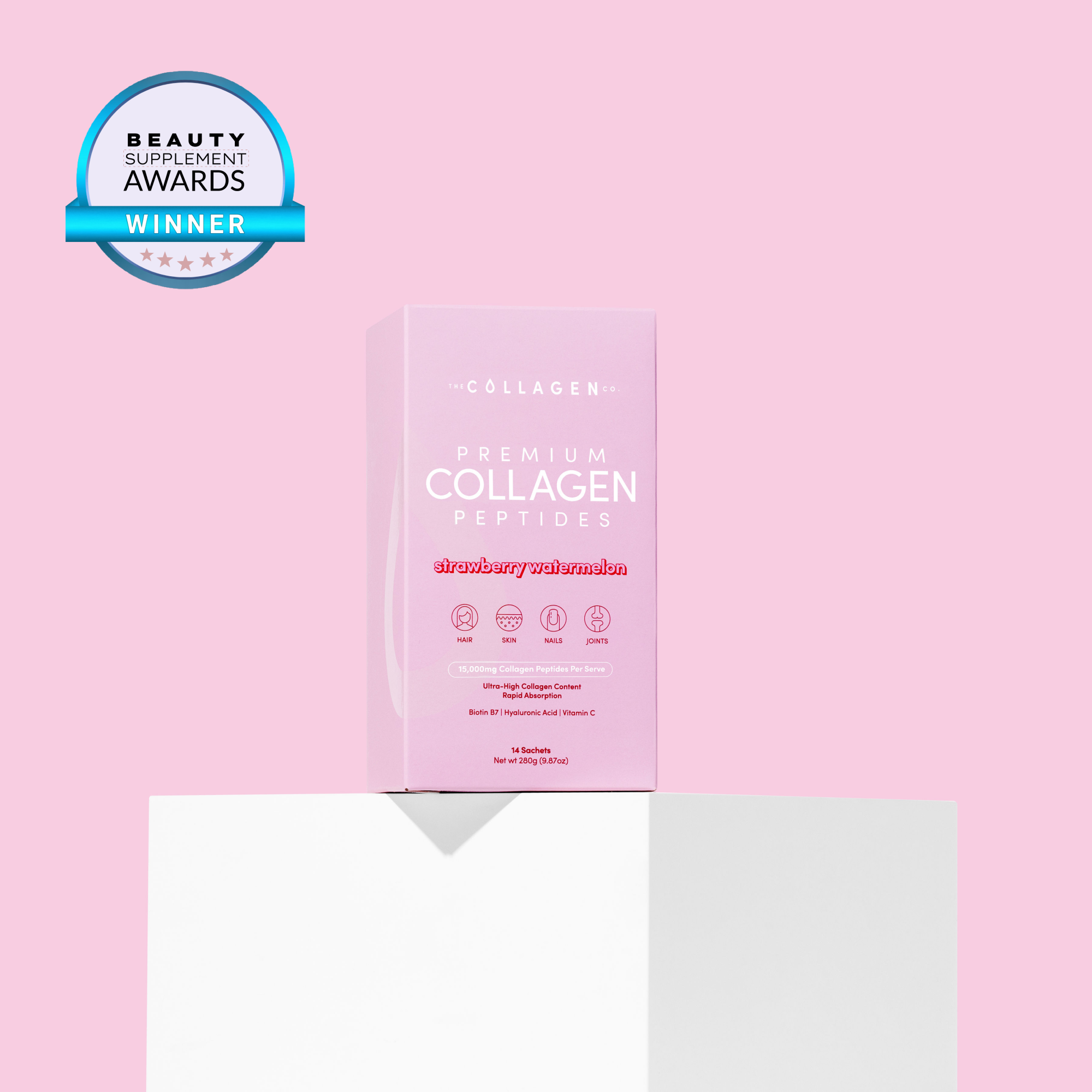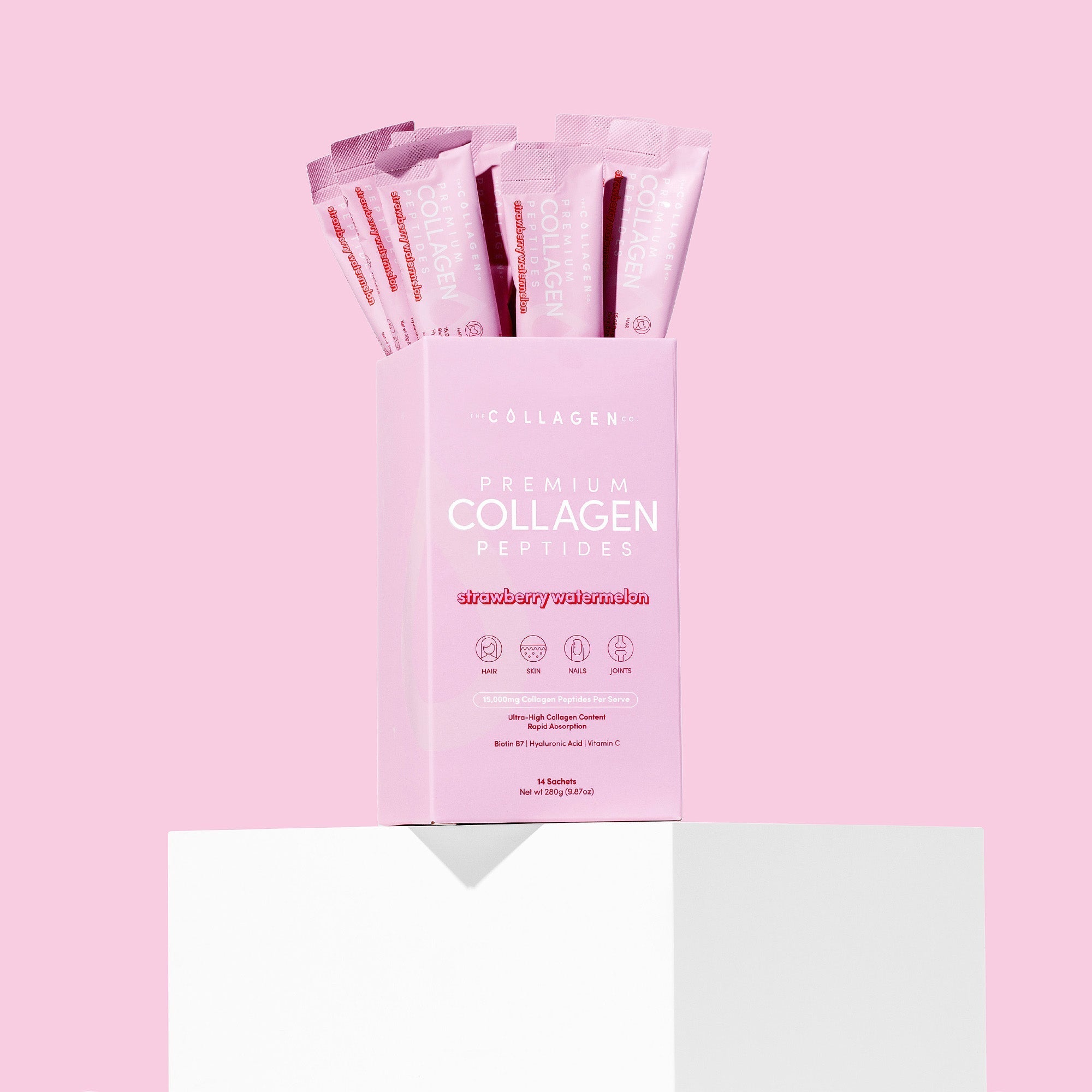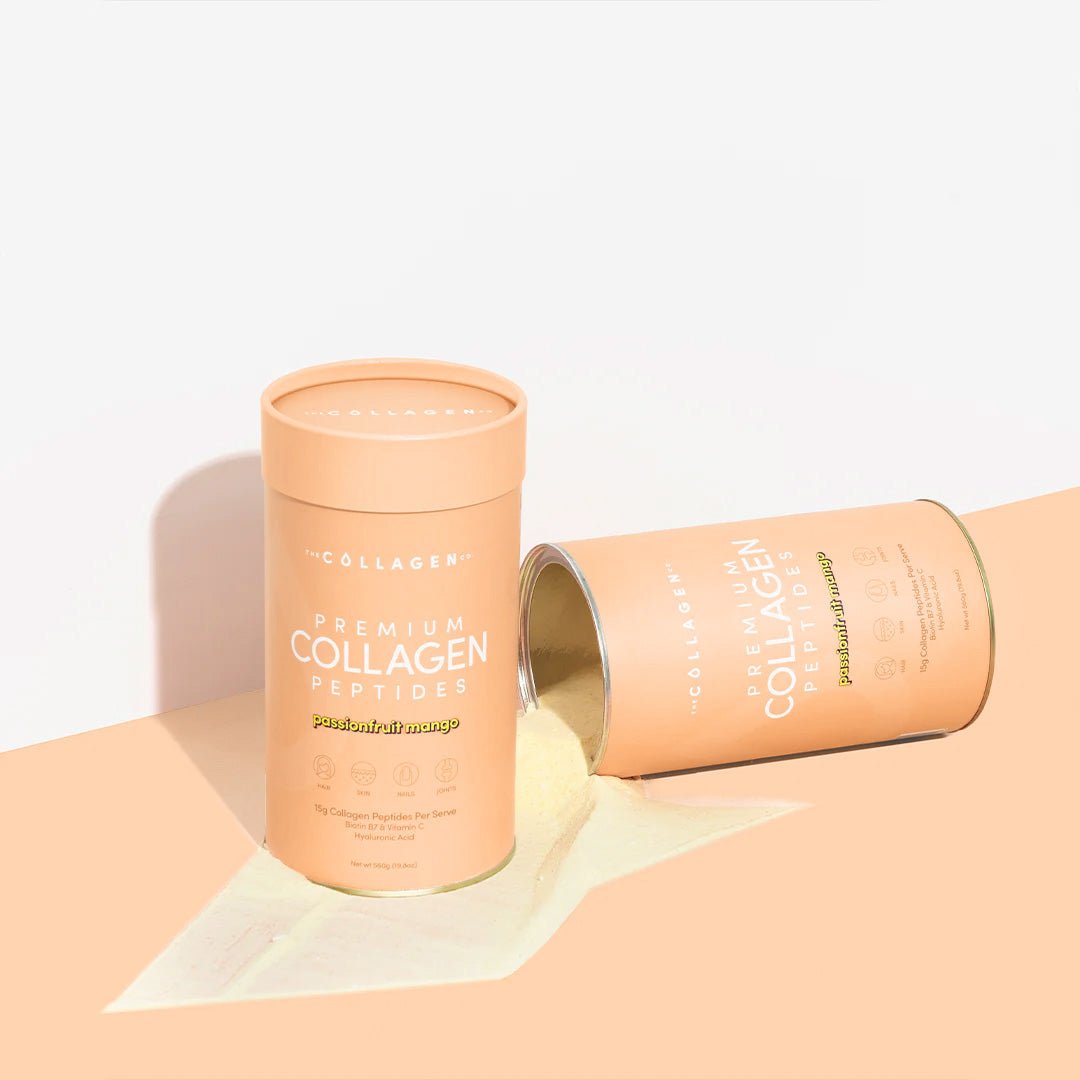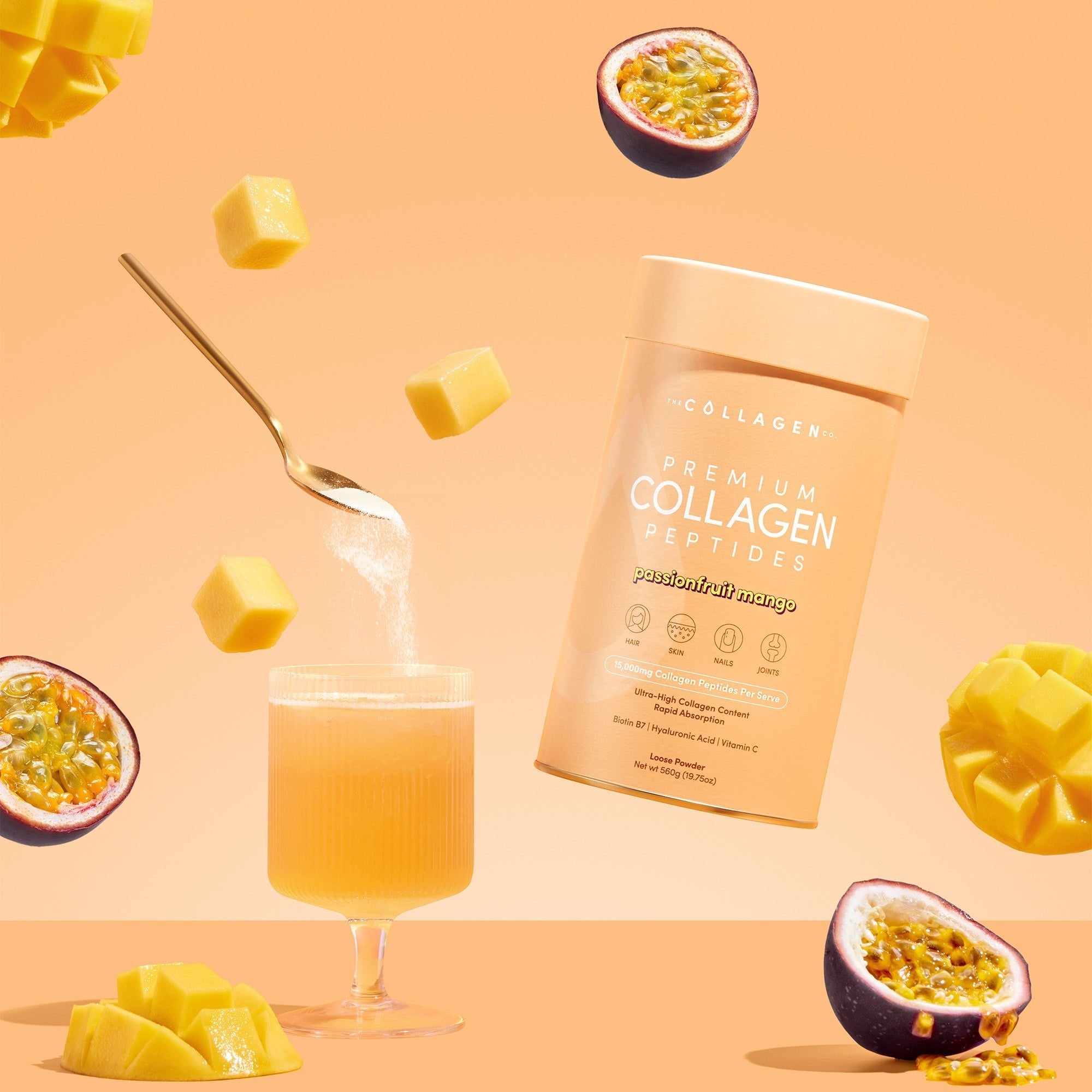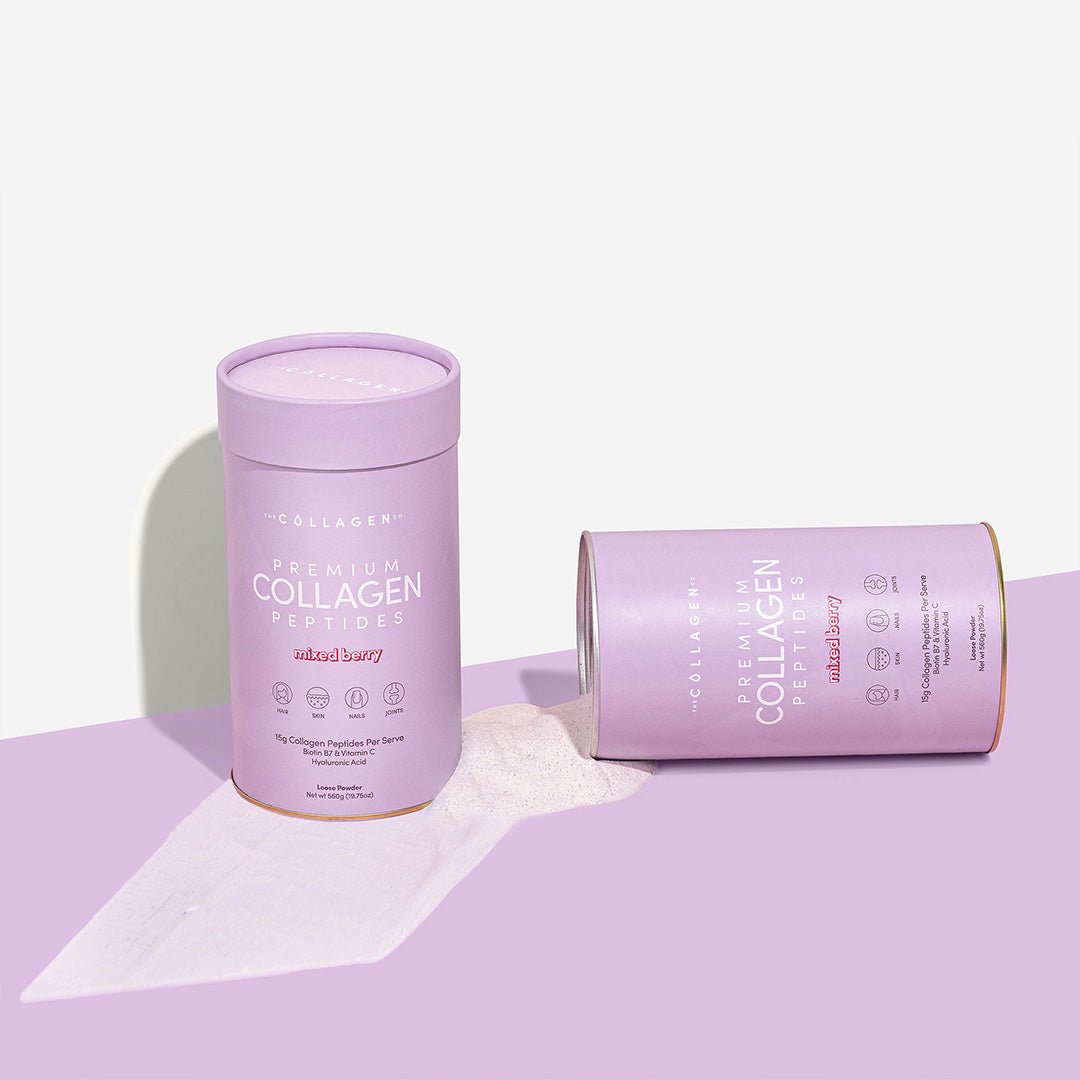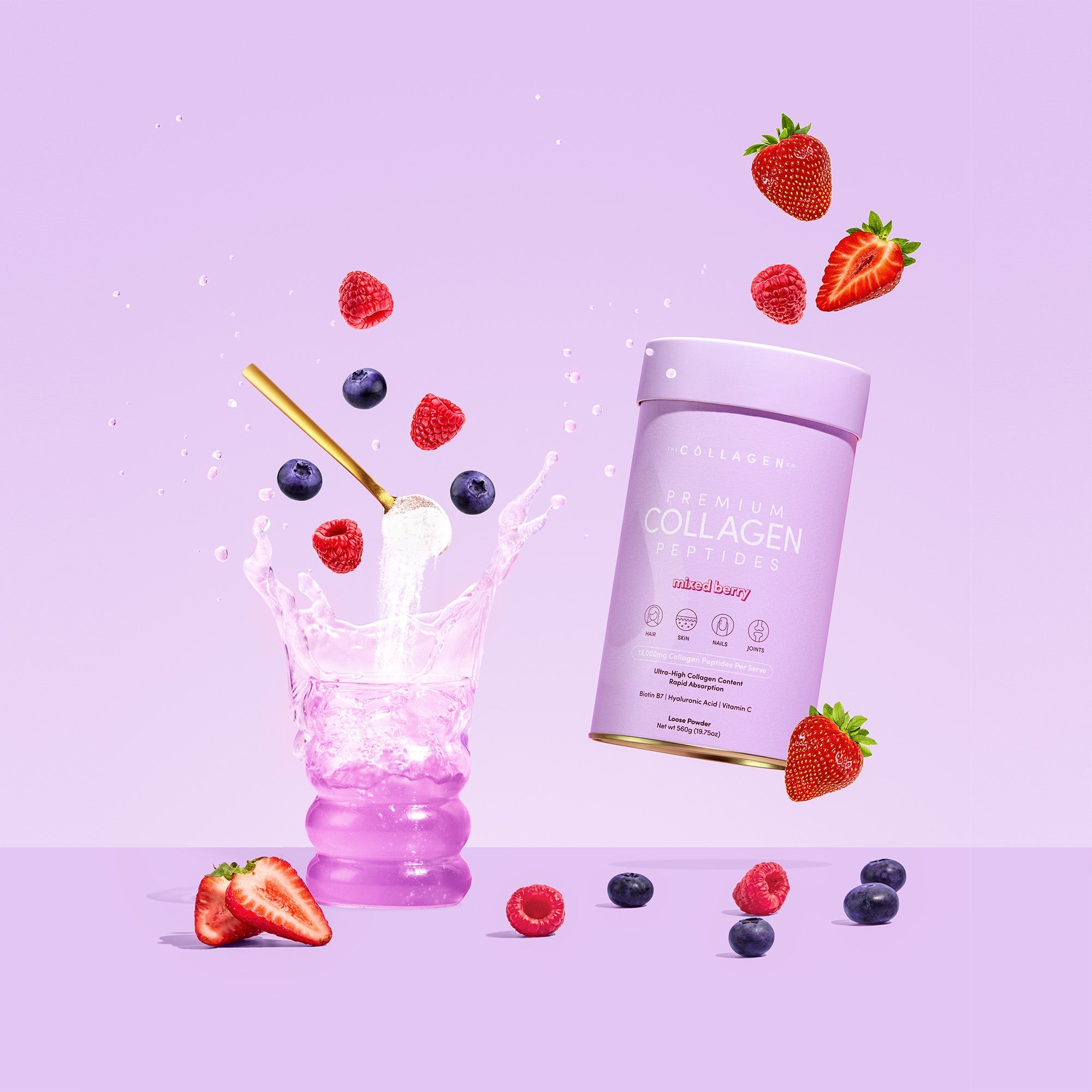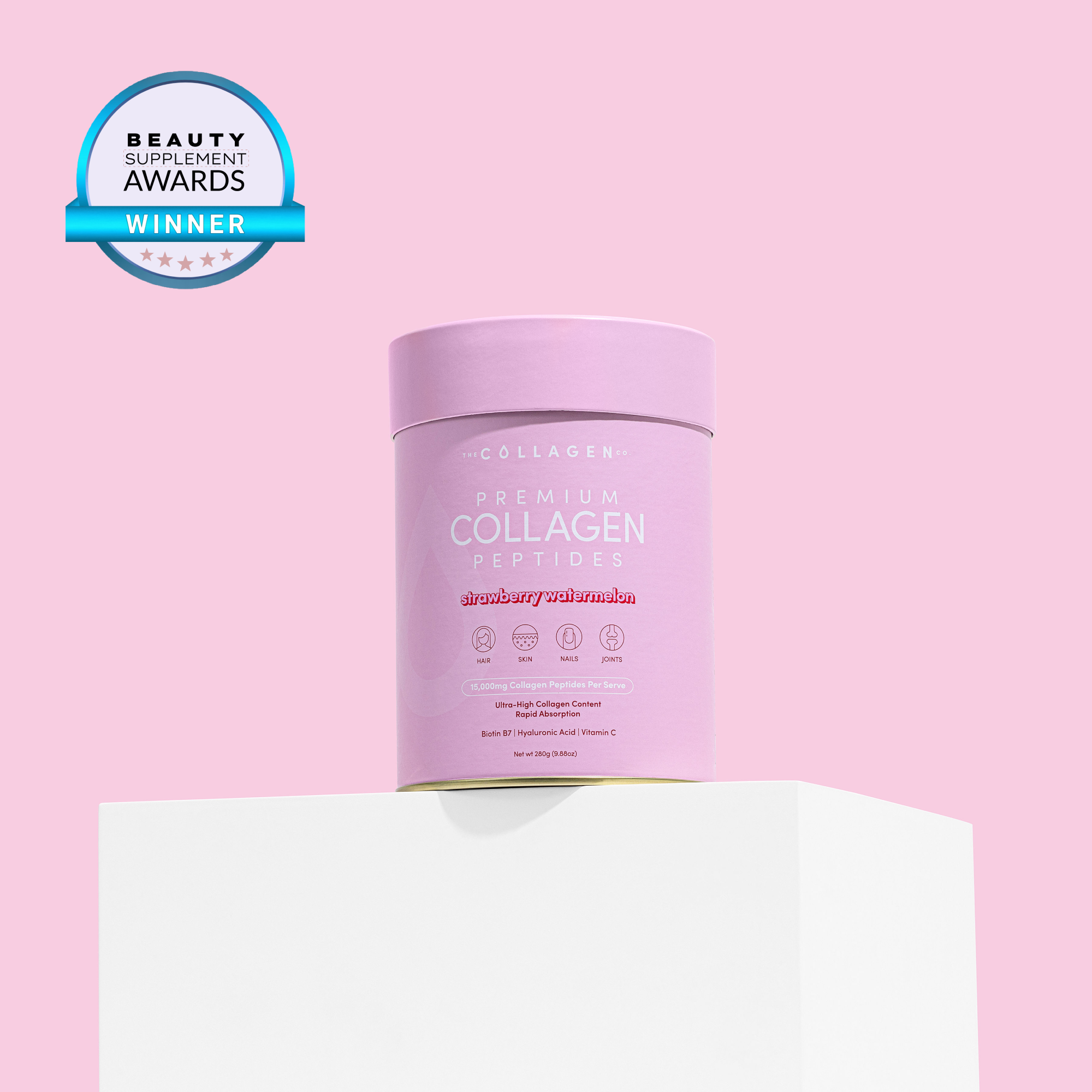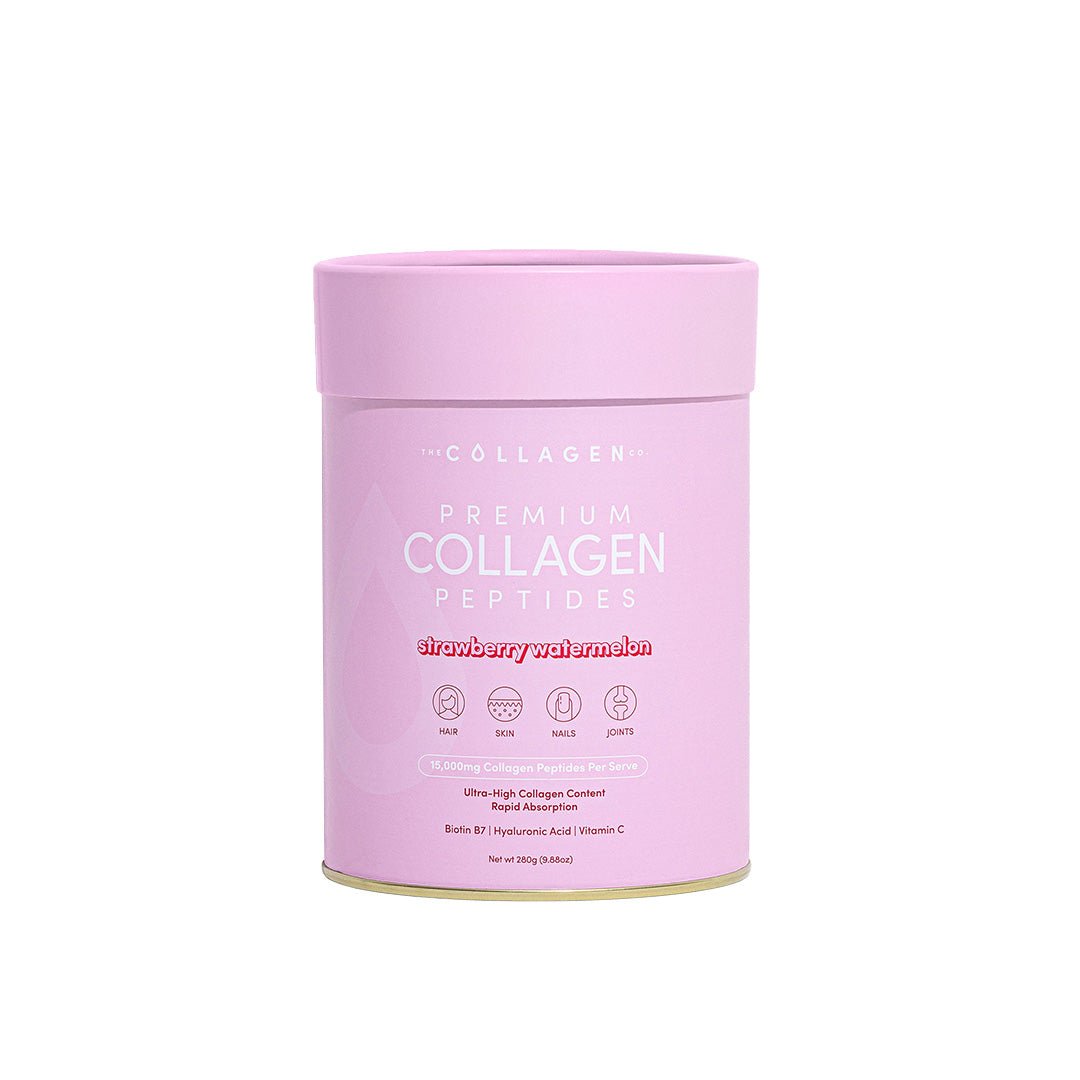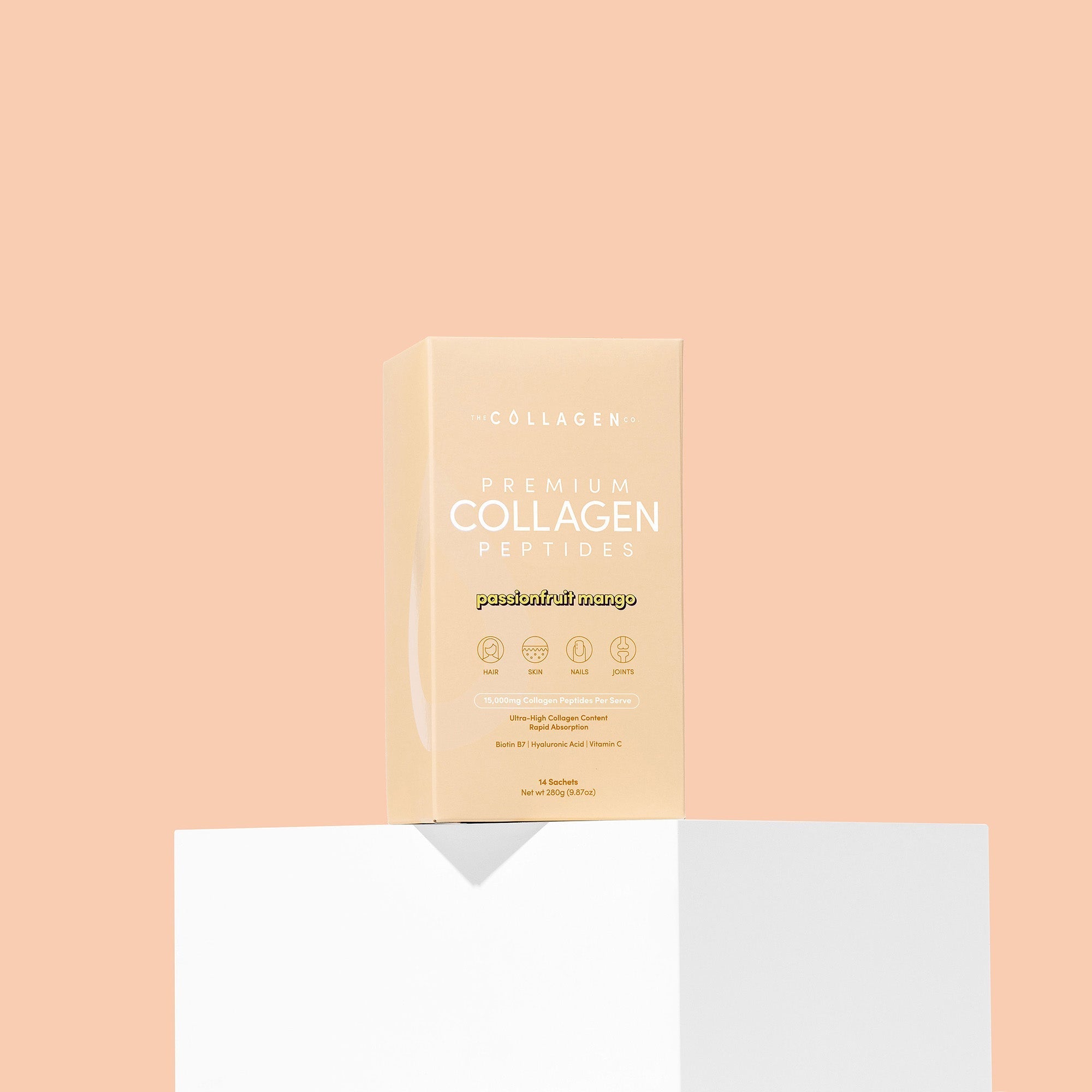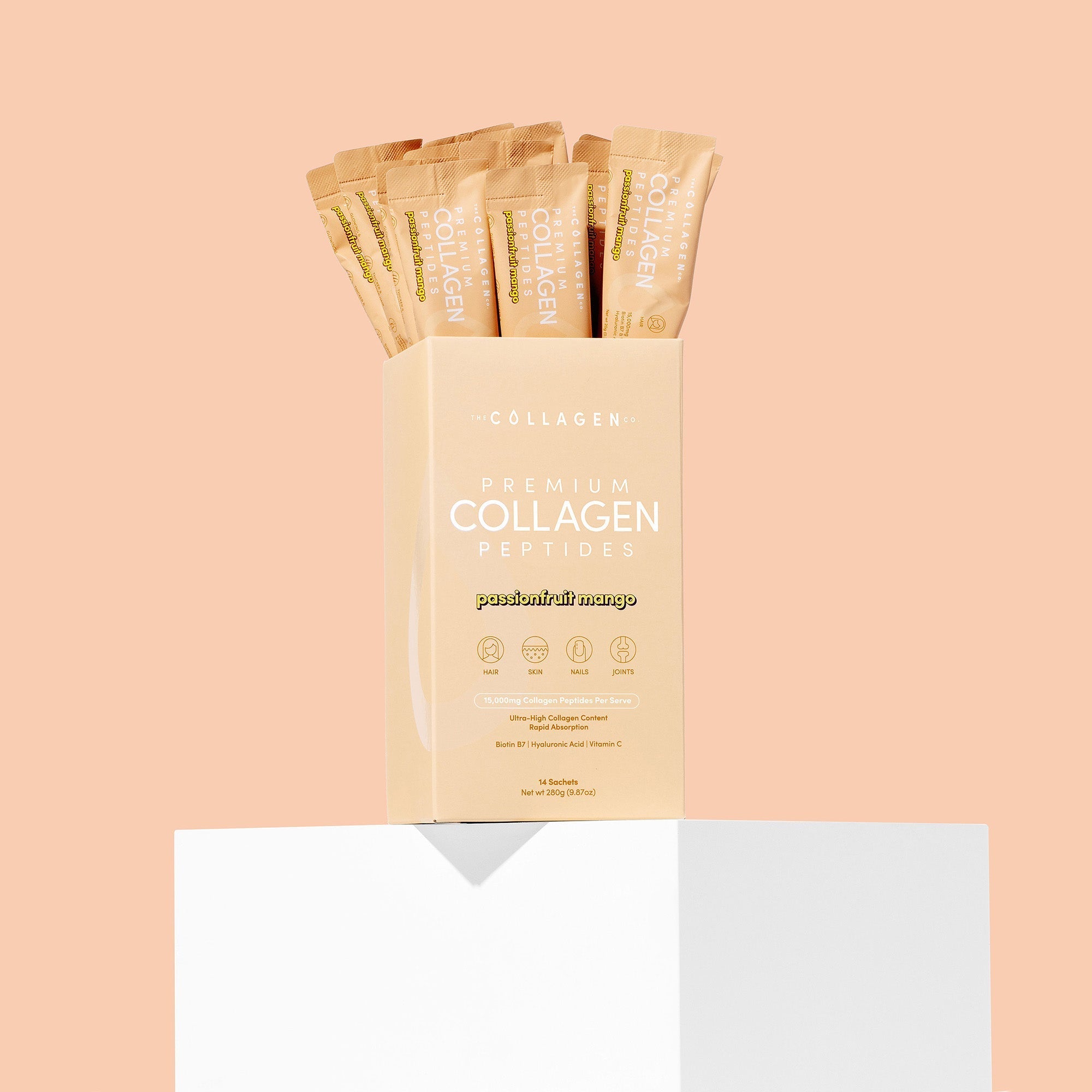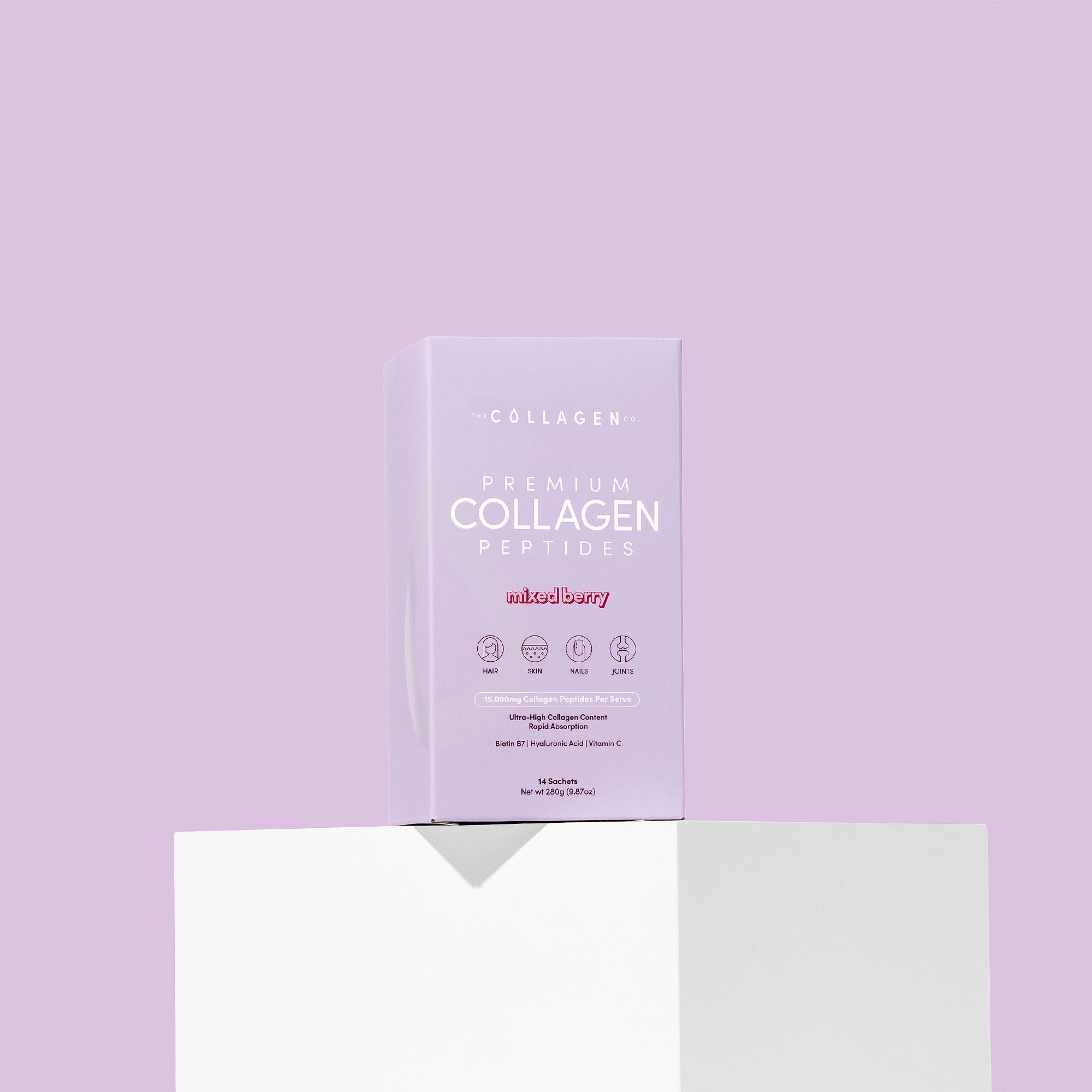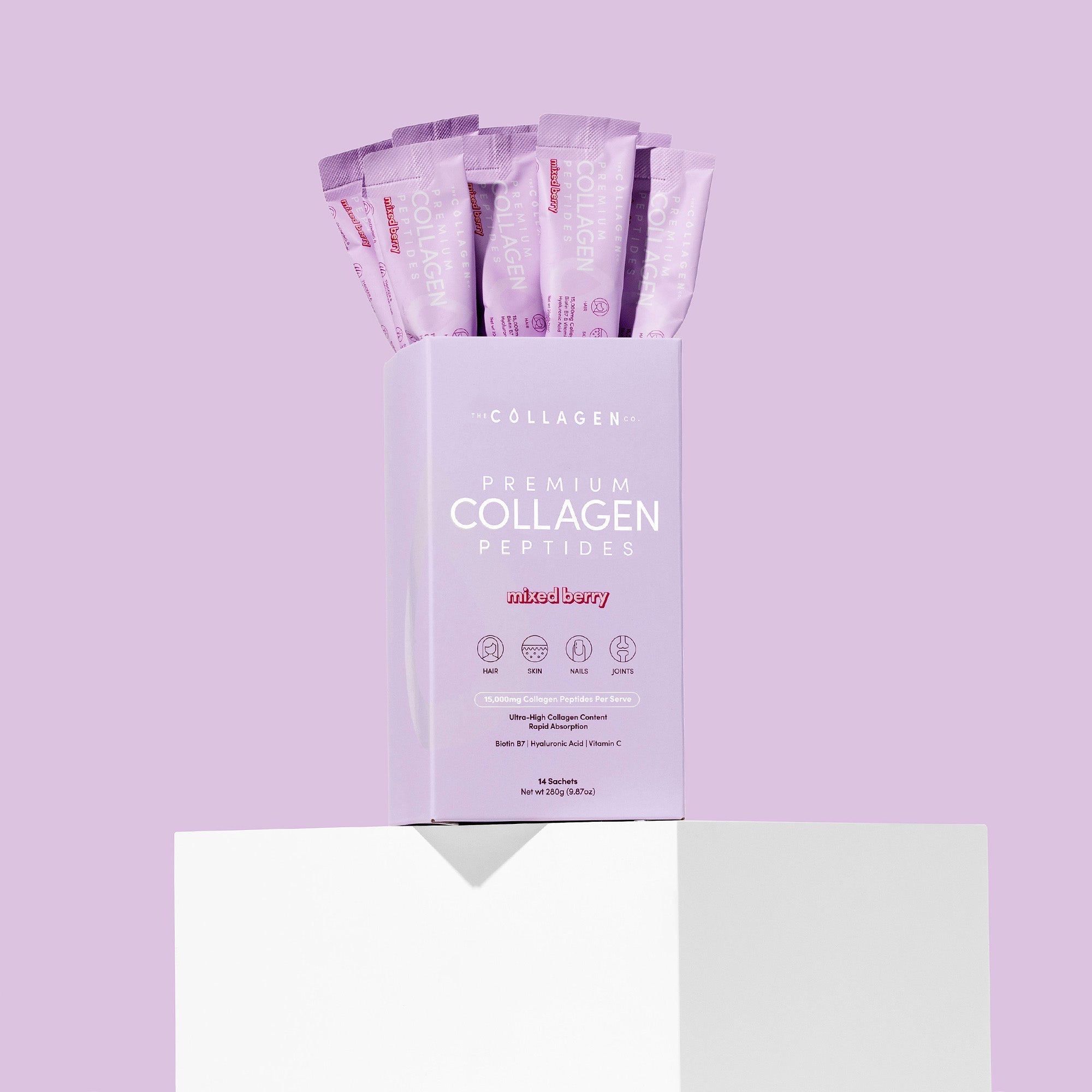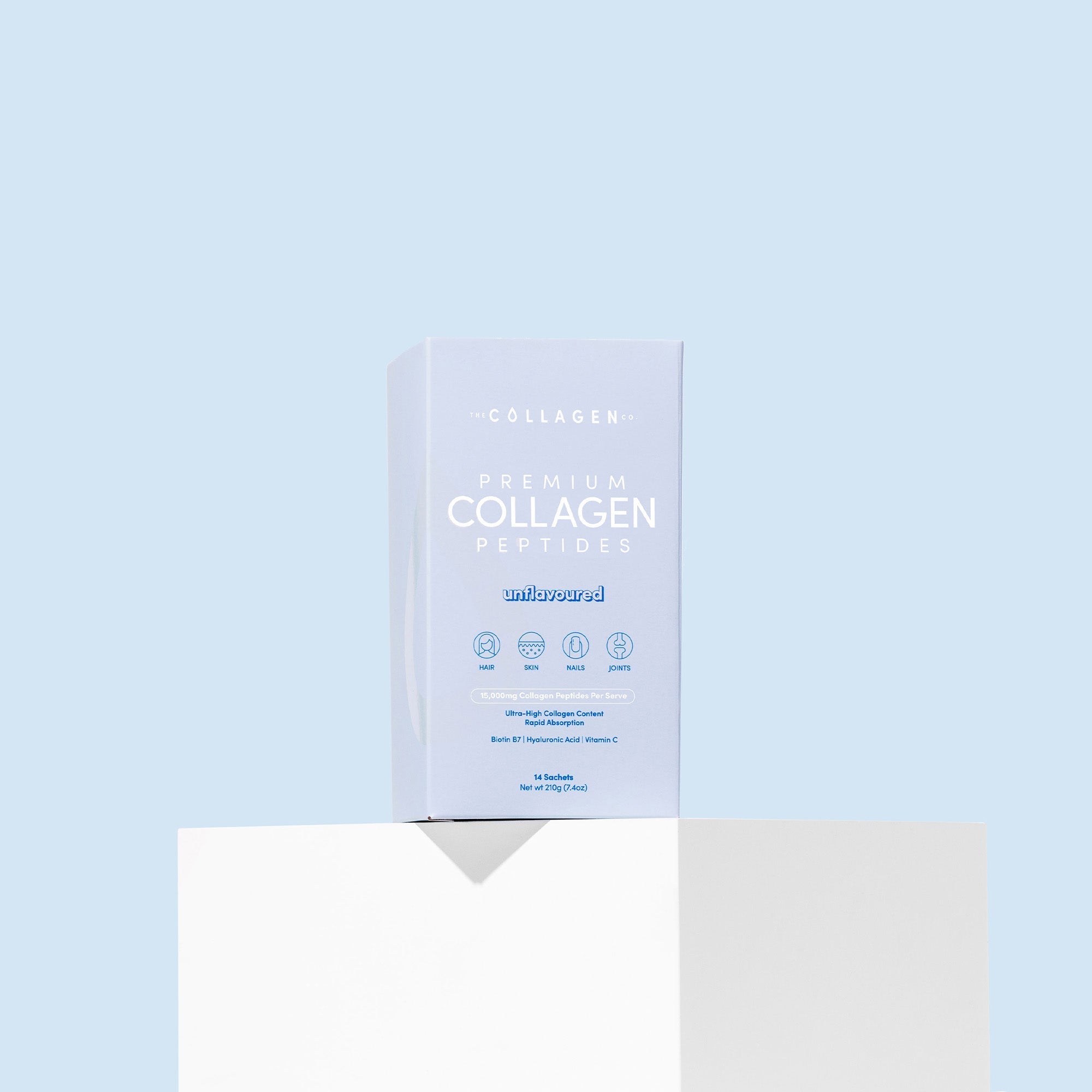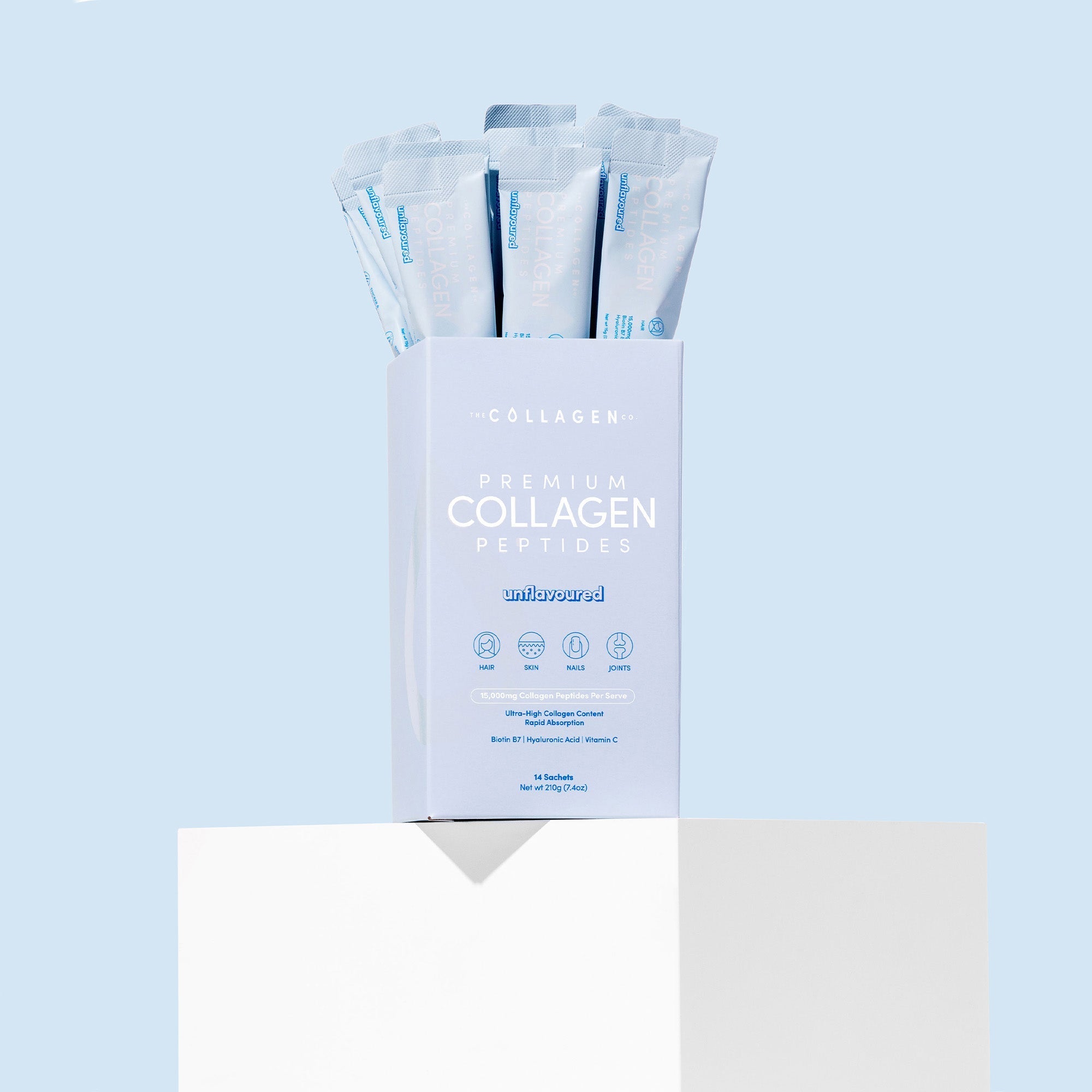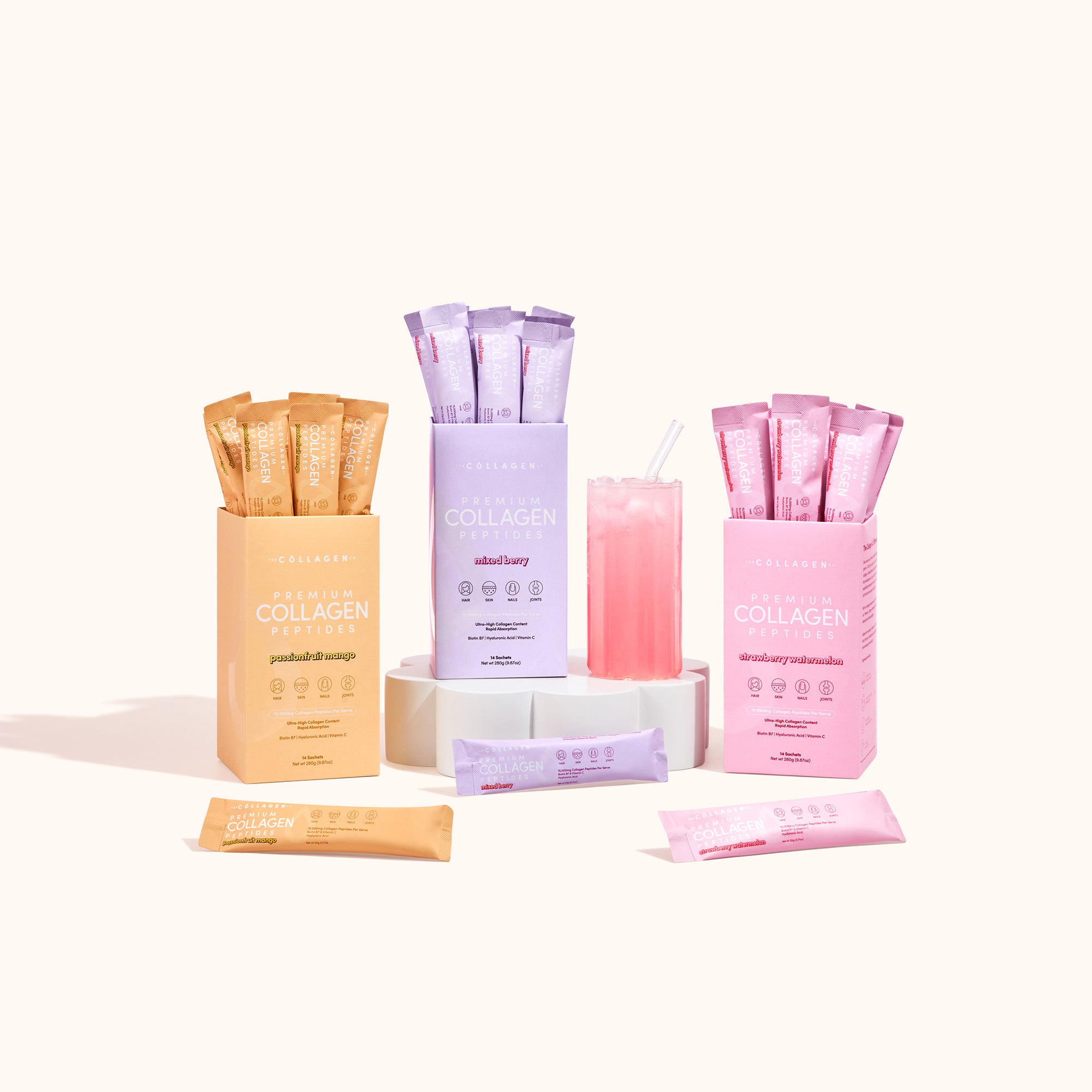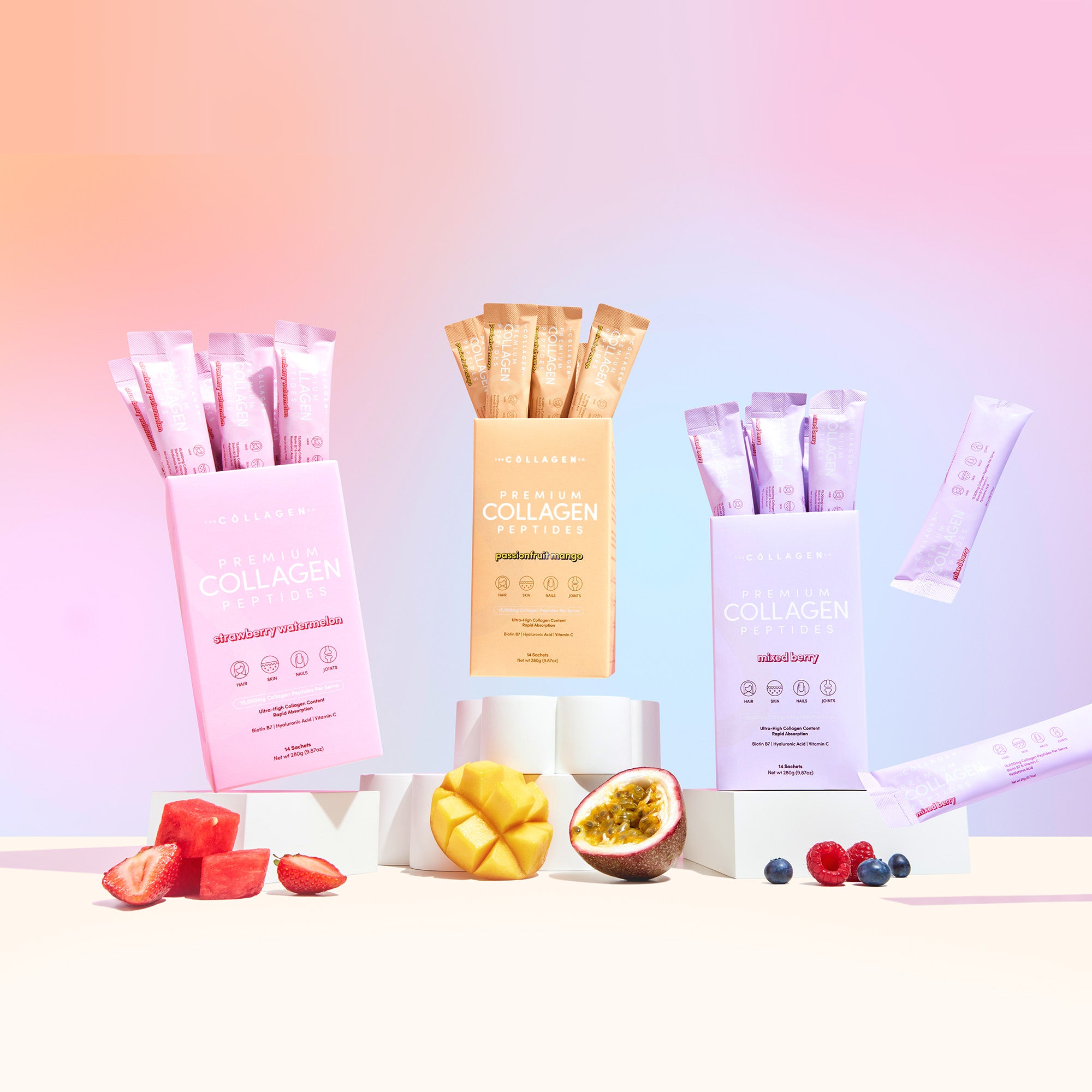Can Collagen Help Period Skin and PMS? A Deep Dive into the Gut-Skin-Hormone Axis
Posted 2nd October 2025

Breakouts before your period? Bloating that makes you question your entire wardrobe? Mood flipping like a light switch? Yep, classic pre-period chaos. And while we’ve learned to tolerate the monthly drama, it doesn’t mean we have to accept it.
Enter collagen. You know it as the glow-up MVP for skin and nails — but it might have a few cycle-calming tricks up its sleeve, too. From helping with hormone-fuelled breakouts to easing PMS puffiness and that sluggish, bloated feeling before your period hits, collagen could be doing more than you think.
How? Let’s break it down.
Your gut, hormones, and skin walk into a bar …
Your gut is the command center for way more than just digestion. It’s handling your immune system, clearing out used-up hormones, regulating neurotransmitters (hi, mood swings), and keeping inflammation from running wild.
But when your gut lining gets a little too leaky (which can happen from stress, sugar, or, yep, hormonal shifts), all kinds of stuff slips into your bloodstream that shouldn’t.
Your body reads it as a threat, and inflammation spikes.
And suddenly, your skin’s flaring up, your stomach feels like it swallowed a balloon, and your mood’s all over the place.
Then your hormones join the party.
As your cycle enters the luteal phase, estrogen levels drop and progesterone levels increase. This hormonal change can slow the rate at which your gut processes food and reduce collagen output in the skin. Translation? Digestion gets sluggish, your skin’s defenses take a hit, and your emotional bandwidth shrinks to one bar.
Bottom line: this isn’t just bloating or bad skin luck. It’s a three-system pile-up; gut, hormones, and skin (and, yep, mood) all firing off at the same time.
Enter, collagen.
It helps shore up your gut lining, soothes inflammation, and gives your skin the structural support it’s missing.
Quick science break: what is collagen?
Collagen is the most abundant protein in your body, making up the structure of your skin, joints, bones, and gut lining.
The thing is, your body doesn’t keep producing it at the same pace forever. From your early 20s, collagen production starts to slow down. Add stress, poor sleep, and hormone dips (like the week before your period), and things can begin to feel… off. Skin gets drier. Digestion gets weird. Your glow goes into hiding.
That’s where hydrolysed collagen peptides come in.
Hydrolysed means it’s pre-broken down into teeny peptides that your body can actually absorb and put to work. Otherwise, it’s just expensive protein that passes through you. These peptides make it into your bloodstream and get delivered to the places that need them most, like your skin, gut, and joints.
Hormonal breakouts? Collagen’s got you
Is collagen going to stop every hormonal pimple from popping up? Not quite. But can it make them less inflamed and help your skin bounce back faster? Absolutely.
-
It gives your skin barrier a little extra backup. When estrogen drops, your natural collagen production slows down. That can leave your skin more sensitive than usual. Collagen peptides help top things up so your barrier isn’t left doing it all alone.
-
It helps spots clear faster and with less aftermath. No, it won’t erase a breakout in 24 hours. But it can help your skin rebuild more quickly, so you’re not dealing with lingering post-breakout marks for the rest of the month.
-
It takes the edge off the redness. It won’t stop every breakout, but hydrolysed collagen peptides could help calm inflammation and keep it from becoming one of those big, swollen, please-don’t-zoom-in breakouts.
-
It supports how your body clears out hormones. If your body doesn’t clear excess estrogen efficiently, it can recirculate and trigger breakouts. Glycine helps support liver detox pathways to keep that in check.
Collagen for when everything feels personal
Here’s how collagen offers mood support:
-
It helps take the edge off. Glycine, an amino acid found in collagen, plays a calming role in the brain by supporting inhibitory neurotransmitters. In real life, that can look like fewer overreactions when your tolerance is hanging by a thread.
-
It supports better sleep (and that changes everything). The week before your period, sleep can get choppy, and that makes mood swings worse. Collagen peptides have been shown to help with sleep onset and quality, so you’re less likely to wake up already over it.
Need more help with your sleep? These are the best natural sleep aids you could try.
-
It supports your gut, which can help stabilise your mood. Gut off = mood off. Collagen may help seal up the gut lining, which could help keep your brain from spiralling when hormones are running the show.
How collagen helps with PMS bloating
Collagen won’t flatten everything overnight, but it can help take the edge off.
-
Again, it helps support your gut lining. When your gut barrier gets leaky, more inflammatory stuff slips through, and that can make bloating worse. Collagen gives your gut the materials to patch itself up and calm down.
-
It might ease water retention. Amino acids like glycine and proline play a role in fluid balance. Less hormonal puff = less of that “why do I feel like a waterbed” feeling.
-
It can help things move along. Thanks to progesterone, digestion shifts into slow-mo mode before your period. Collagen can’t exactly hit fast-forward, but it helps your gut function better behind the scenes, so things don’t have to feel quite so clogged up.
Bottom line?
Collagen won’t stop your hormones from doing their thing, but it can make the mood swings, bloat, and breakouts feel less intense.
That’s exactly what The Collagen Co’s Premium Collagen Peptides were made for.
Each scoop delivers 15 grams of hydrolysed collagen peptides, plus vitamin C to support absorption, so your skin, gut, and nervous system get real, functional support when they need it most.
There’s unflavoured for maximum versatility (hello, morning coffee), or if that’s not your thing, it also comes in a range of fruitilicious flavours, like Strawberry Watermelon, Mixed Berry, and even Passionfruit Mango. You can check out the full lineup here.

